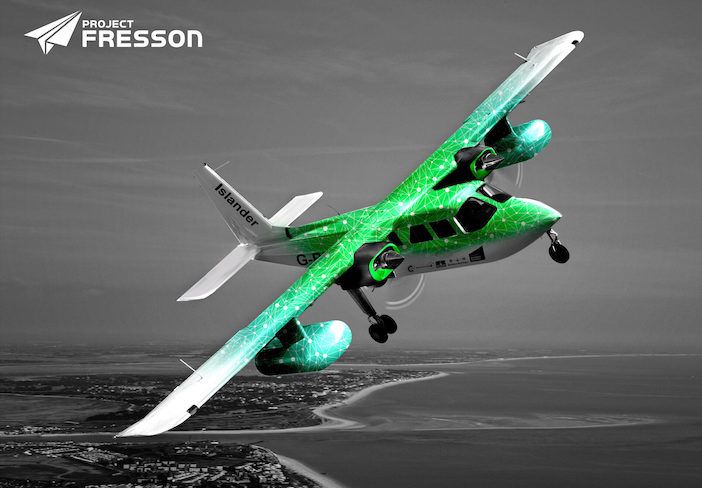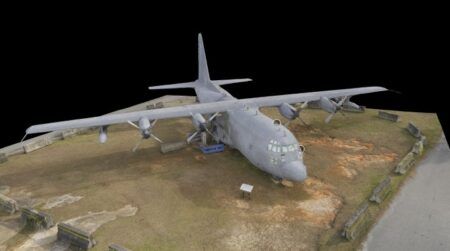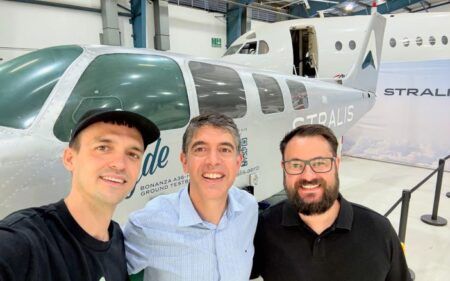A research program developing a retrofittable hybrid-electric propulsion system for the Britten-Norman Islander aircraft has switched from using batteries to hydrogen fuel cells as its power source.
The 9-seat Islander light utility aircraft is used for a variety of roles including regional commercial and military transport and was originally designed in the 1960s. A fleet of around 750 Islanders operates around the world today according to manufacturer Britten-Norman.
Cranfield Aerospace Solutions (CAeS) is leading Project Fresson to develop the retrofittable powertrain solution for the nine-passenger Britten-Norman Islander aircraft. The project, which is joint funded by a £9 million (US$12 million) UK-Government grant and industry funding, aims to develop a hydrogen-fuel-cell-powered flying demonstrator by September next year.
Project Fresson was originally launched in November 2019 and partnered with Rolls-Royce to provide the power management system, but as a result of the switch to hydrogen, the aero-engine maker will no longer be involved. Rolls-Royce said it will continue to research the use of hydrogen in aviation and that this decision in no way reflects its overall view of hydrogen as a potential technology.
CAeS will now work with engineering firm Ricardo UK to develop the fuel cell system and Scottish firm Innovatus Technologies on a lightweight composite high-pressure hydrogen fuel tank.
The switch to hydrogen fuel cell technology was made after evaluating the different technologies and configurations and finding that hydrogen best meets the environmental, regulatory and operational requirements for this size of the aircraft, said the Fresson consortium
Paul Hutton, CEO of CAeS said, “This project can deliver the world’s first truly green passenger carrying airline services. The whole team is proud of what Project Fresson has achieved so far and excited about what is to come.”
Innovatus Technologies’ ultralightweight hydrogen tank design uses a patented composite to enable the storage of hydrogen at a 10% higher density than other tanks. Ruan Swart, CEO of Innovatus Technologies said, “Our SHyFT [Scottish Hydrogen Fuel Tank) is game-changing in bringing zero carbon fuel cell energy to commercial reality in the transport sector.”
Steve Dyke, Ricardo Automotive and Industrial EMEA’s managing director said, “Our work for the Fresson consortium will enable us to consolidate and grow our hydrogen fuel cell and propulsion capability, so that Ricardo can achieve its ambition of becoming a world-leader in hydrogen and fuel cell services and solutions and help accelerate net zero transportation.”
The hydrogen fuel cell conversion kit is not the only update being developed for the Islander aircraft. In October last year Britten-Norman announced it was working with drone company Blue Bear on retrofit autonomous systems for the aircraft.





